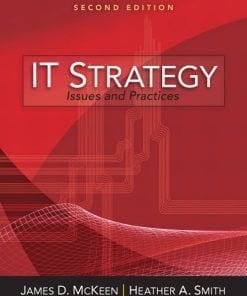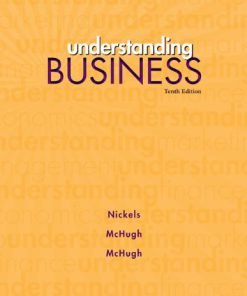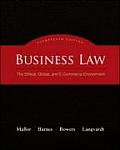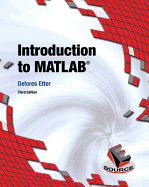Solution Manual for Law for Business, 14th Edition, A. James Barnes Eric Richards Tim Lemper
$55.00 Original price was: $55.00.$29.99Current price is: $29.99.
Solution Manual for Law for Business, 14th Edition, A. James Barnes, Eric Richards, Tim Lemper
Instant download Solution Manual for Law for Business, 14th Edition, A. James Barnes, Eric Richards, Tim Lemper pdf docx epub after payment.
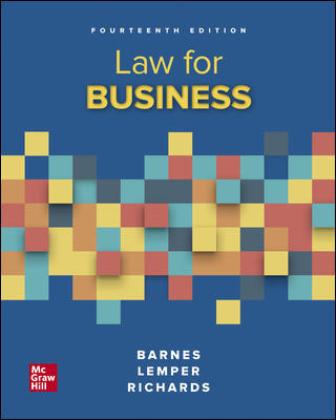
Product details:
- ISBN-10 : 1260247767
- ISBN-13 : 978-1260247763
- Author: A. James Barnes; Eric Richards; Timothy Lemper
A focus on readability and proven pedagogical devices ensures Law for Business is a student-friendly perspective that will aid students in their comprehension and critical analysis of often complex topics in business law. It’s comprehensive, yet concise approach is appealing to both students and instructors alike giving instructors flexibility and students the ability to understand the fundamental importance of how legal issues impact decision making in business.
Table of contents:
- PART 1 INTRODUCTION TO THE LAW
- Chapter 1 Law and Legal Reasoning
- Introduction
- Law in Business
- Chapter Overview
- The Nature of Law
- Legal Rules
- Functions of Law
- Classifications of Law
- Substantive versus Procedural Law
- Criminal versus Civil Law
- Constitutional Foundations
- Checks and Balances
- Constitutional Powers
- Constitutional Limitations
- Federalism
- Sources of Law
- Constitutions
- Treaties
- Statutes
- Administrative Rules and Decisions
- Executive Orders
- Judicial Decisions
- Private Law
- Legal Reasoning
- Legal Interpretation
- Law and Orderly Change
- Procedural Safeguards
- Stare Decisis
- Jurisprudence
- Legal Positivism
- Natural Law
- Sociological Jurisprudence
- Legal Realism
- Preventive Law
- Importance of Studying Business Law
- Objectives of Preventive Law
- Chapter 2 Dispute Settlement
- Introduction
- Chapter Overview
- State Courts
- Inferior Courts
- Trial Courts
- Appeals Courts
- Federal Courts
- District Court
- Special Courts
- Court of Appeals
- The Supreme Court
- Litigation
- Standing
- Class Action Lawsuits
- Jurisdiction
- Venue
- The Adversary System
- Role of the Judge
- Role of the Attorneys
- Competence and Care
- Attorney-Client Privilege
- Crime-Fraud Exception
- Work Product Privilege
- Civil Procedure
- The Functions of Procedure
- Pleadings
- Discovery
- The Trial
- Appellate Procedure
- Basis for Appeal
- The Appeal
- Results of Appeal
- Alternative Dispute Resolution
- Negotiation
- Mediation
- Arbitration
- Minitrial and Summary Jury Trial
- Private Judging
- Other ADR Mechanisms
- Chapter 3 Business Ethics and Corporate Social Responsibility
- Introduction
- Chapter Overview
- Predominant Ethical Theories
- Rights Theory
- Justice Theory
- Utilitarianism
- Profit Maximization
- The Law as a Corporate Control Device
- Corporate Influence on the Content of the Law
- Conscious Lawbreaking
- Unknown Harms
- Irrational Corporate Behavior
- Defining Ethical Corporate Behavior
- Values That Find Wide Acceptance
- Corporate or Industry Codes of Ethical Conduct
- Constituency Values
- The Corporate Governance Agenda
- Greater Shareholder Power
- Changing the Composition of the Board
- Changes in Management Structure
- Guidelines for Ethical Decision Making
- Model for Making Ethical Decisions
- Using the Guidelines
- Chapter 4 Business and the Constitution
- Introduction
- State Regulation of Business
- State Power
- Federal Preemption
- Dormant Commerce Clause
- Federal Regulation of Business
- Constitutional Checks on Governmental Power
- State Action
- The Takings Clause
- The Due Process Clause
- Equal Protection
- The First Amendment
- Time, Place, or Manner Restrictions
- Freedom of Religion
- Administrative Agencies
- Breadth of Agency Regulation
- Characteristics of Agencies
- Agency Powers
- Chapter 5 Crimes
- The Nature of Crimes
- The Essentials of Crime
- Criminal Procedure
- Crime and People in Business
- Sentencing Guidelines
- The Sarbanes-Oxley Act of 2002
- RICO
- The Foreign Corrupt Practices Act
- Global Anticorruption Initiatives
- Cybercrime
- The Electronic Communications Privacy Act
- The Computer Fraud and Abuse Act
- Recent Developments in Cybercrime
- International Efforts to Combat Cybercrime
- Chapter 6 Intentional Torts
- Introduction to Torts
- Interference with Personal Rights
- Battery
- Assault
- False Imprisonment
- Intentional Infliction of Mental Distress
- Defamation
- Invasion of Privacy
- Misuse of Legal Proceedings
- Interference with Property Rights
- Trespass to Land
- Trespass to Personal Property
- Conversion
- Interference with Economic Relations
- Disparagement
- Interference with Contract
- Interference with Economic Expectations
- Chapter 7 Negligence and Strict Liability
- Negligence
- Duty
- Breach of Duty
- Causation
- General Causation Rules
- Res Ipsa Loquitur
- Negligent Infliction of Emotional Distress
- Defenses to Negligence
- Recklessness
- Strict Liability
- Current Issues
- Chapter 8 Licensing and Intellectual Property
- Introduction
- Intellectual Property Rights
- Patents
- Trademarks
- Copyright
- Copyright Infringement
- Fair Use
- First Sale Doctrine
- Trade Secrets
- Technology Transfer Agreements
- Nature of Licensing
- Advantages of Licensing
- Risks of Licensing
- Negotiating the Agreement
- Intellectual Property Aspects of Social Media
- PART 2 CONTRACTS
- Chapter 9 The Nature and Origins of Contracts
- What Is a Contract?
- Why Have Contracts?
- How Has Contract Law Developed?
- The Uniform Commercial Code
- Article 2
- Creation of Practical Contract Rules
- Cyber-Contracts
- Good Faith and Fair Dealing
- Contracts for the International Sale of Goods
- Types of Contracts
- Valid, Unenforceable, Voidable, and Void Contracts
- Unilateral and Bilateral Contracts
- Executed and Executory Contracts
- Express and Implied Contracts
- Quasi Contract
- Promissory Estoppel
- Chapter 10 Creating a Contract: Offers
- Introduction
- What Is an Offer?
- Intent
- Definiteness
- Communication to the Offeree
- Cyber-Contracts
- Shrinkwrap and Click-On Contracts
- Special Problems with Offers
- Advertisements
- Rewards
- Auctions
- Bids
- What Terms Are Included in Offers?
- How Long Do Offers Last?
- Terms of the Offer
- Lapse of Time
- Revocation
- Firm Offers
- Options
- Estoppel
- Revocation of Offers for Unilateral Contracts
- The Effectiveness of Revocations
- Rejection
- Death or Insanity of Either Party
- Destruction of Subject Matter
- Intervening Illegality
- Chapter 11 Creating a Contract: Acceptances
- What Is an Acceptance?
- The Battle of the Forms
- Accepting an Offer for a Unilateral Contract
- Accepting an Offer for a Bilateral Contract
- Silence as Acceptance
- Who Can Accept an Offer?
- Acceptance When a Writing Is Anticipated
- Communication of Acceptance
- Manner of Communication
- When Is Acceptance Communicated?
- Authorized Means of Communication
- Acceptance by Shipment
- Nonauthorized Means of Communication
- Cyber-Contracts
- Click-On and Browse-Wrap Contracts
- Chapter 12 Consideration
- The Idea of Consideration
- Legal Value
- Adequacy of Consideration
- Bargained for and Given in Exchange
- Solving Consideration Problems
- Facts
- Rules of Consideration
- Preexisting Duties
- Promises to Discharge Debts for Part Payment
- Past Consideration
- Forbearance to Sue
- Mutuality of Obligation
- Additional Exceptions to the Requirement of Consideration
- Promissory Estoppel
- Firm Offer
- Charitable Subscriptions
- Debts Barred by Bankruptcy Discharge or the Statute of Limitations
- Chapter 13 Capacity to Contract
- Introduction
- Minors’ Contracts
- The Reason for Minors’ Incapacity
- Ability to Disaffirm
- Ratification
- The Consequences of Disaffirming
- Barriers to Disaffirmance
- Emancipation
- Misrepresentation of Age by Minors
- Necessaries
- Contracts of Mentally Impaired and Intoxicated Persons
- Theory of Incapacity
- The Test of Incapacity
- The Effect of Incapacity
- Necessaries
- The Right to Disaffirm
- Ratification
- Chapter 14 Voluntary Consent
- Introduction
- The Need for Knowing and Voluntary Consent
- The Parties’ Duty of Care
- The Remedy
- Ratification
- Misrepresentation
- Knowledge of Falsity
- Materiality
- Fact versus Opinion
- Justifiable Reliance
- Detriment
- Fraud
- What Is a “Knowingly Made” Misstatement?
- Intent to Deceive
- Fraud by Silence
- Fraud in the Execution
- The Remedy for Fraud
- Duress and Undue Influence
- General Nature
- Duress
- Undue Influence
- Mistake
- The Nature of Mistake
- Mutual Mistake
- Unilateral Mistake
- Chapter 15 Illegality
- Introduction
- Illegality
- Types of Illegality
- The Presumption of Legality
- The Effect of Illegality
- General Rule
- Ignorance of Fact or Special Regulation
- Rights of Protected Parties
- Rescission before Performance of Illegal Act
- Illegality and Divisible Contracts
- Contracts to Commit Illegal Acts
- Agreements to Commit Crimes
- Agreements to Commit Torts
- Contracts Made Illegal by Statute
- Wagering Statutes
- Statutes Declaring Bargains Void or Voidable
- Regulatory Statutes
- Contracts Contrary to Public Policy
- The Idea of Public Policy
- Contracts Injurious to Public Service
- Contracts to Influence Fiduciaries
- Exculpatory Clauses
- Contracts in Restraint of Trade
- Unequal Bargains
- The Code and Unconscionable Contracts
- Chapter 16 The Form and Meaning of Contracts
- The Statute of Frauds
- The Effect of Failure to Comply
- Contracts Covered by the Statute of Frauds
- Executors’ Agreements to Personally Pay Their Decedents’ Debts
- Contracts to Answer for the Debt of Another
- Contracts Transferring an Interest in Land
- Bilateral Contracts Not Capable of Being Performed within One Year
- What Kind of Writing Is Required?
- Cyber-Contracts and E-Signatures
- The Code’s Statute of Frauds
- Interpreting Contracts
- The Necessity of Interpretation
- Rules of Construction
- The Parol Evidence Rule
- The Purpose of the Rule
- Exceptions to the Parol Evidence Rule
- Chapter 17 Third Parties’ Contract Rights
- Assignment of Contracts
- Definition
- What Contracts Are Assignable?
- The Consequences of Assignment
- The Rights and Duties of Assignees
- Delegation of Duties
- Third-Party Beneficiary Contracts
- Donee Beneficiaries
- Creditor Beneficiaries
- Incidental Beneficiaries
- Chapter 18 Performance and Remedies
- Conditions
- Definition
- Types of Conditions
- The Creation of Conditions
- Standards of Performance
- Strict Performance
- Substantial Performance
- Material Breach
- Anticipatory Breach
- Special Performance Problems
- The Time for Performance
- Excuses for Nonperformance
- Prevention
- Impossibility
- Discharge
- The Nature of Discharge
- Discharge by Agreement
- Discharge by Waiver
- Discharge by Alteration
- Discharge by Statute of Limitations
- Remedies
- The Theory of Remedies
People alsos search:
Law for Business, 14th Edition
Law for Business, 14th Edition pdf
Law for Business
how many years is business law
laws for business owners
what does business law cover
Related products
Solution Manual
Management Information Systems Managing the Digital Firm Laudon 14th Edition Solutions Manual
Solution Manual
Solution Manual
Solution Manual
Solution Manual
Understanding Business Nickels 10th Edition Solutions Manual
Solution Manual







